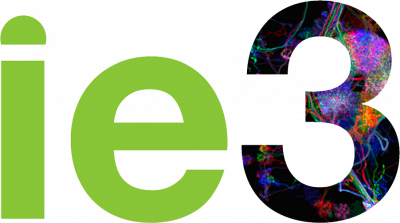Instructor Driven Change:
Co-creation of teaching and learning environments.

![]() Underlying hypothesis: Cohort-based professional development coupled with reflective practices can promote equity mindsets to question the status quo and improve enacted curricula on individual and unit levels.
Underlying hypothesis: Cohort-based professional development coupled with reflective practices can promote equity mindsets to question the status quo and improve enacted curricula on individual and unit levels.
Our approach of cohort-based professional development aligns with social network theory of change. Instructor driven change through leadership communities of equity-minded and scholarly teaching and learning, aims to accelerate relationship building, dissemination of information, and facilitation of learning under the umbrella of our belief that teaching cannot be effective without being inclusive and equitable.
GOALS:
- Develop a common structure among LCC institutions to plan, implement, and evaluate professional learning communities (PLCs)
- Support LCC partners by identifying support structures and barriers to PLC success
- Document the process of institutional change amongst LCC partners
Year 1 activities
- Documented current Professional Learning Community (PLC) activities occurring at each LCC institution
- Identified goals and expectations of members and their institutions
- Collected data regarding current PLC efforts at each participating campus and analyze these data to inform project activities moving forward
This project collected information from all 15 institutions on current efforts to engage local stakeholders in the campus learning communities. The raw data was compiled and analyzed by Sara Stifano, Assistant Professor in Residence in the Department of Communications, and PhD student, Rachel Tucker. It was then presented in a format that fits different communication needs: locally at the home institutions, within LCC5, and for dissemination to HHMI and beyond.
Recommendations from Data collection and analysis:
Recommendation: Explore the relationship between Plans, Goals, and Assessment: Spend time developing plans and subgoals that will allow PLCs to achieve the superordinate goals of the LCC.
Reflection: Most of the institutions can articulate what their goal is, but do not always address HOW they plan to assess whether and to what extent they have achieved the goal. They can (broadly) articulate their goals, but when it comes to outcome assessment, they are unsure (i.e., do not provide detail on this) because they haven't thought through HOW they plan to achieve these goals. Concerns about not having specific outcomes is also likely a barrier to participating in these PLCs. Consider an increased level of specificity, especially around identifying goals, methods of assessment, and barriers. This level of forethought and detail makes it easier for LCC5 to build a narrative to share with various stakeholders.
Recommendation: Barriers are a reflection of systemic issues within academia: Reward faculty for their work
Reflection: Lack of rewards/incentives was mentioned regularly and typically reflects an institutional problem. There is no incentive (from a tenure standpoint, for example) to implement these changes. If you are not recognized or rewarded for doing this work, then what's the point? If we want faculty to commit more time, then the institution itself needs to re-think their promotion and tenure procedures. A $1,000 stipend is like using a piece of tape to stop a leak. What you need is a new pipe.